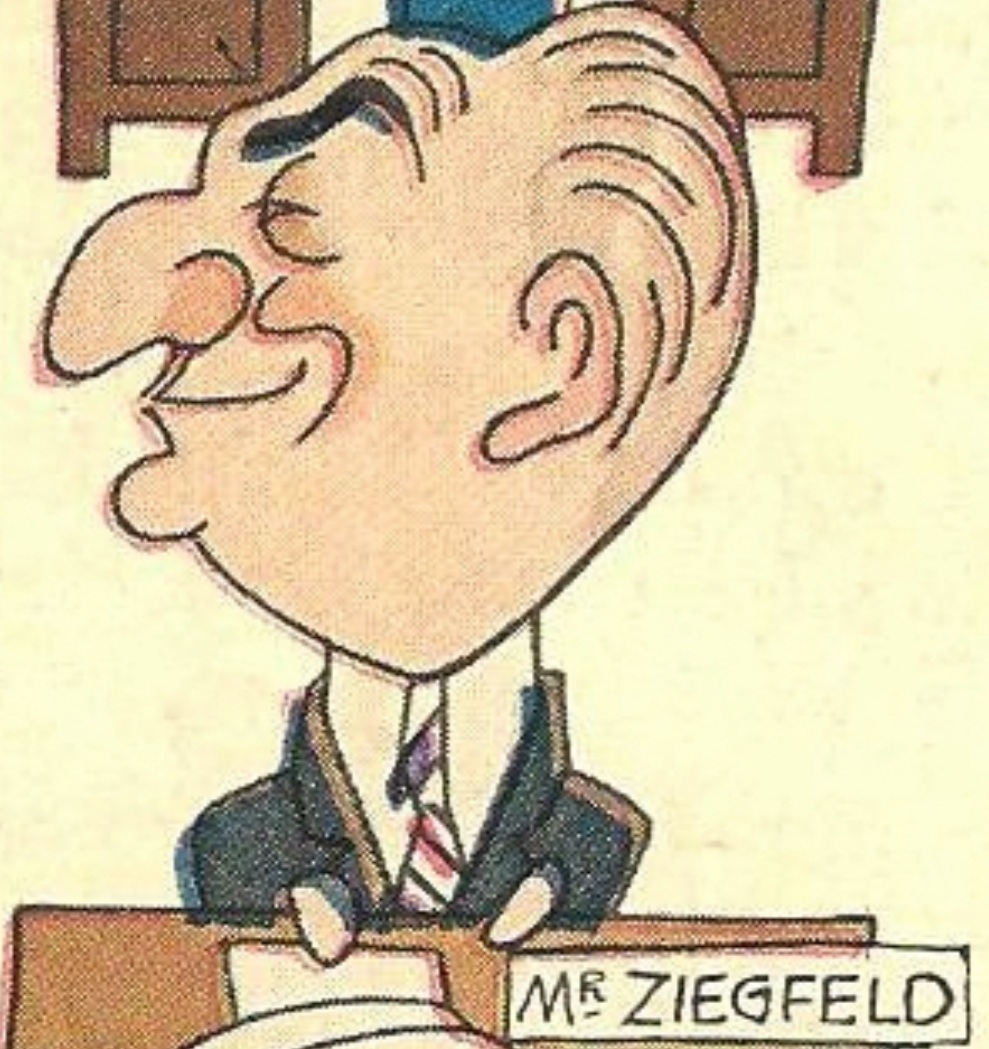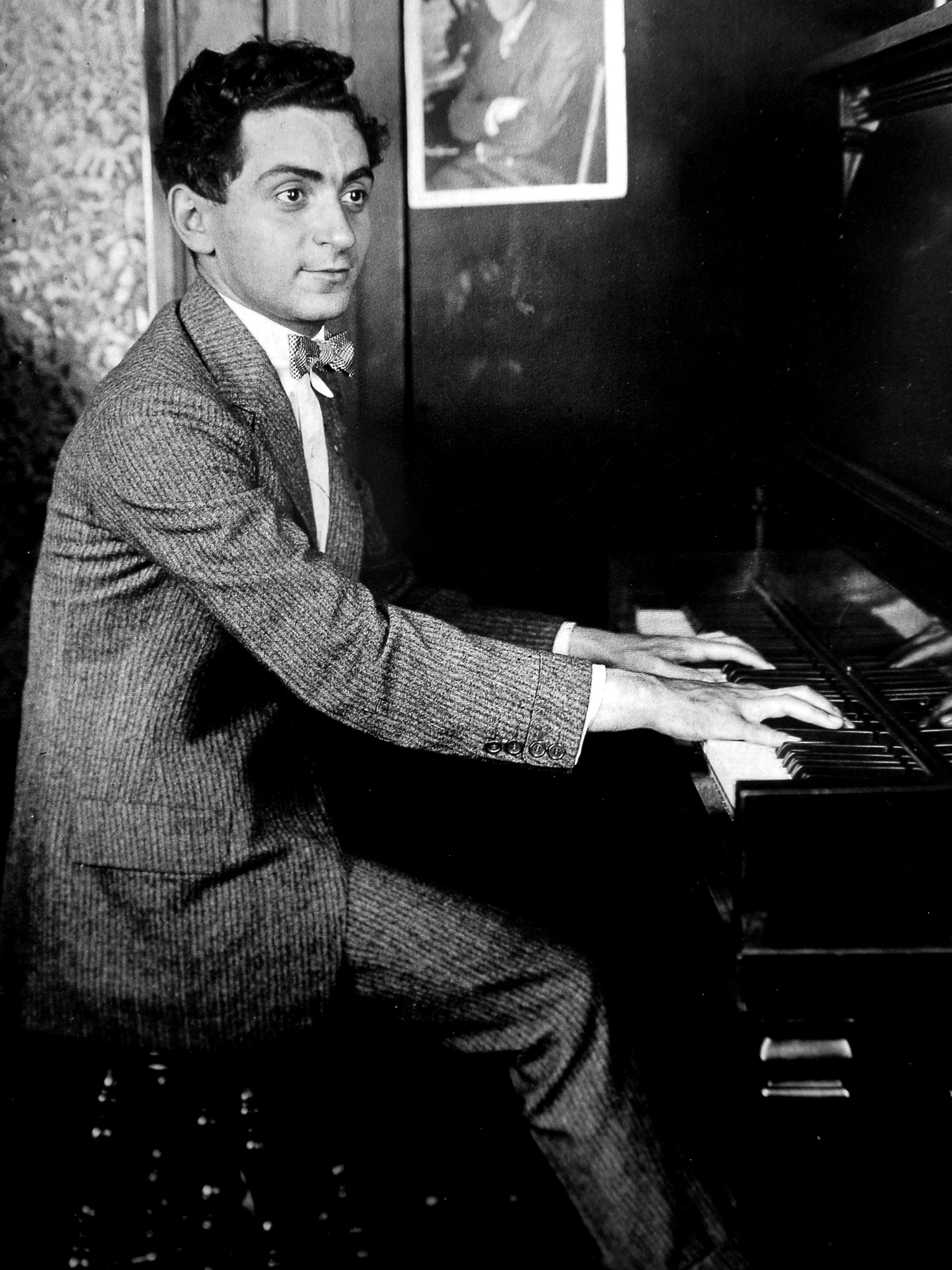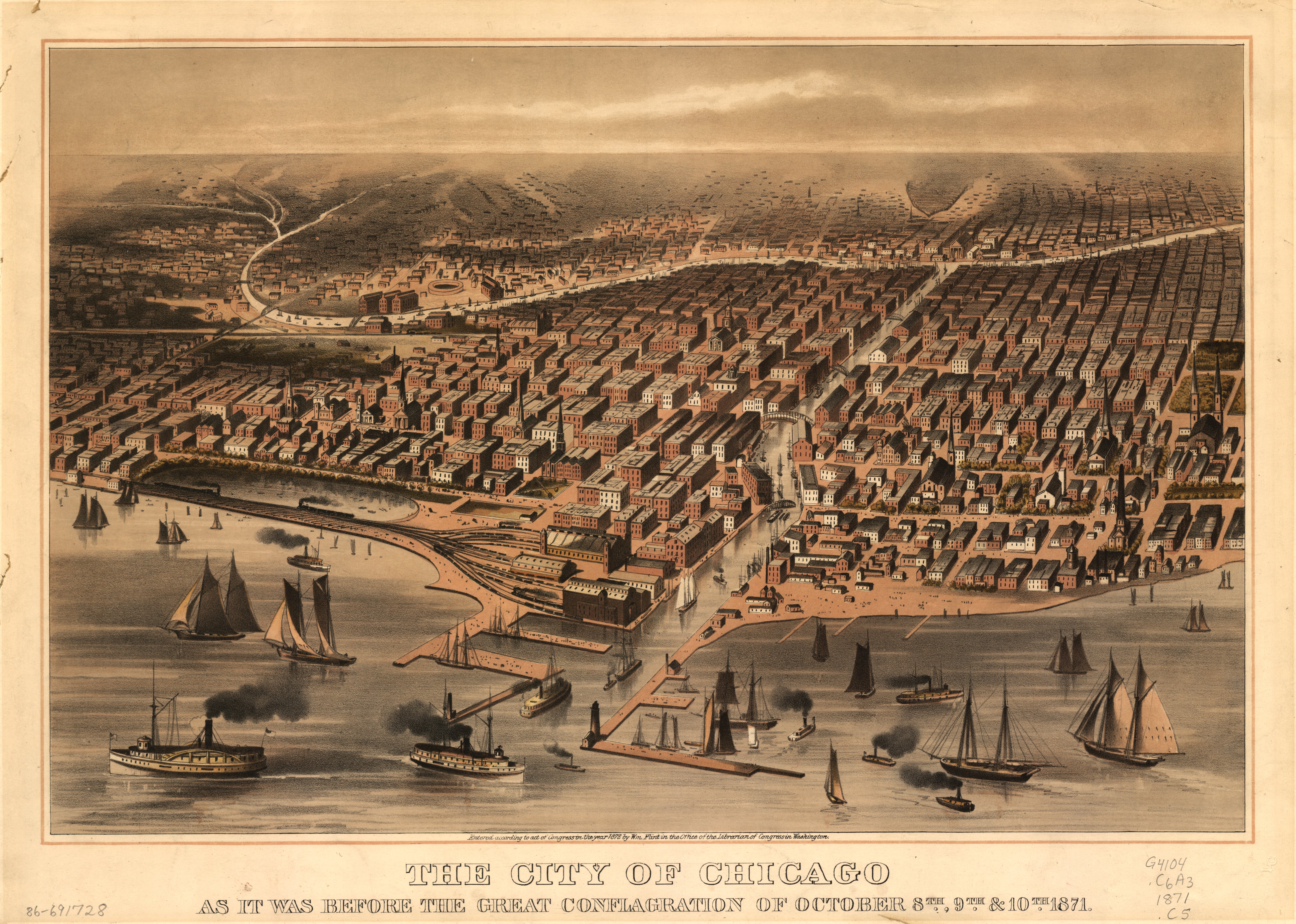|
Florenz Ziegfeld
Florenz Edward Ziegfeld Jr. (; March 21, 1867 – July 22, 1932) was an American Broadway impresario, notable for his series of theatrical revues, the ''Ziegfeld Follies'' (1907–1931), inspired by the '' Folies Bergère'' of Paris. He also produced the musical ''Show Boat''. He was known as the "glorifier of the American girl". Ziegfeld is a member of the American Theater Hall of Fame. Early life Florenz Edward Ziegfeld Jr. was born on March 21, 1867, in Chicago, Illinois. His mother, Rosalie (''née'' de Hez), who was born in Belgium, was the grandniece of General Count Étienne Maurice Gérard. His father, Florenz Edward Ziegfeld, was a German immigrant whose father was the mayor of Jever in Friesland. Ziegfeld was baptized in his mother's Roman Catholic church. His father was Lutheran. As a child Ziegfeld witnessed the Chicago fire of 1871. Career His father ran the Chicago Musical College and later opened a nightclub, the ''Trocadero'', to profit from the 1893 Wor ... [...More Info...] [...Related Items...] OR: [Wikipedia] [Google] [Baidu] |
Chicago, Illinois
Chicago is the List of municipalities in Illinois, most populous city in the U.S. state of Illinois and in the Midwestern United States. With a population of 2,746,388, as of the 2020 United States census, 2020 census, it is the List of United States cities by population, third-most populous city in the United States after New York City and Los Angeles. As the county seat, seat of Cook County, Illinois, Cook County, the List of the most populous counties in the United States, second-most populous county in the U.S., Chicago is the center of the Chicago metropolitan area, often colloquially called "Chicagoland" and home to 9.6 million residents. Located on the shore of Lake Michigan, Chicago was incorporated as a city in 1837 near a Chicago Portage, portage between the Great Lakes and the Mississippi River, Mississippi River watershed. It grew rapidly in the mid-19th century. In 1871, the Great Chicago Fire destroyed several square miles and left more than 100,000 homeless, but ... [...More Info...] [...Related Items...] OR: [Wikipedia] [Google] [Baidu] |
Jever
Jever () is the capital of the district of Friesland (district), Friesland in Lower Saxony, Germany. The name Jever is usually associated with a major brand of beer, Jever Pilsener, which is produced there. The city is also a popular holiday resort. Jever was granted city status in 1536. Unofficially Jever is sometimes referred to as ''Marienstadt'' (Maria city) in reference to Maria of Jever, the last independent ruler of the city. The inhabitants of Jever are named ''Jeveraner'' ("Jeverans"). Politics City Council The Jever City Council consists of 30 members—the fixed number for a town with a population of between 12,001 and 15,000 inhabitants. The 30 councillors are elected by local elections for a five-year term. The current term of office began on 1 November 2021 and ends on 31 October 2026 The full-time mayor Jan Edo Albers (Independent politician, Independent) is also entitled to vote in the city council. The results of the last local elections, on 11 September 201 ... [...More Info...] [...Related Items...] OR: [Wikipedia] [Google] [Baidu] |
Irving Berlin
Irving Berlin (born Israel Isidore Beilin; May 11, 1888 – September 22, 1989) was a Russian-born American composer and songwriter. His music forms a large part of the Great American Songbook. Berlin received numerous honors including an Academy Award, a Grammy Award, and a Tony Award. He also received the Presidential Medal of Freedom from President Gerald R. Ford in 1977. Broadcast journalist Walter Cronkite stated he "helped write the story of this country, capturing the best of who we are and the dreams that shape our lives".Carnegie Hall, May 27, 1988 Irving Berlin's 100th birthday celebration Born in , Berlin arrived in the United States at the age of five. His family l ... [...More Info...] [...Related Items...] OR: [Wikipedia] [Google] [Baidu] |
Extravaganza
An extravaganza is a literary or musical work (often musical theatre) usually containing elements of Victorian burlesque, and pantomime, in a spectacular production and characterized by freedom of style and structure. The term is derived from the Italian word ''stravaganza'', meaning extravagance. It sometimes also has elements of music hall, cabaret, circus, revue, variety, vaudeville and mime. ''Extravaganza'' came, in the 20th century, to more broadly refer to an elaborate, spectacular, and expensive theatrical production. Professor Carolyn Wiliams writes that playwrights, producers and critics have often muddled the distinction between burlesque and extravaganza, but she describes the genre this way: "Sexy yet free of "offensive vulgarity", silly yet intelligent, raucus yet spectacularly beautiful, extravaganza was a relatively "high" form of burlesque, intended for an urbane adult audience." She notes that the definition of extravaganza changed during the 19th century, in ... [...More Info...] [...Related Items...] OR: [Wikipedia] [Google] [Baidu] |
Stanley Green (historian)
Stanley Green (May 29, 1923 – December 12, 1990) was an American historian of theatre and film. He was also a writer on music who worked as an editor at '' Stereo Review'', and was a radio personality who hosted the WBAI radio program "The World of Musical Comedy". Life and career Stanley Green was born in Brooklyn, New York, on May 29, 1923. He attended Union College in Schenectady, New York, where he graduated in 1943. He joined the United States Army and received further education in the Army Specialized Training Program at the University of Nebraska. He then served in the United States Army Signal Corps in the Pacific War during World War II. From 1957 to 1963 Green worked as an editor at '' Stereo Review''. He also wrote the liner notes to more than 100 albums, and wrote articles for '' Atlantic Monthly'', ''The New York Times'', '' Saturday Review'', '' Musical America'', and '' Variety'' among other publications. He was the author of ten books and numerous periodical ... [...More Info...] [...Related Items...] OR: [Wikipedia] [Google] [Baidu] |
A Parisian Model
''A Parisian Model'' is a 1906 Edwardian musical comedy with music by Max Hoffman, Sr. to a book and lyrics by Harry B. Smith. The story concerns a dressmaker's model who comes into a fortune. It opened on Broadway in 1906, ran with success and toured. It was produced by Frank McKee and Florenz Ziegfeld Jr., and starred Anna Held, Ziegfeld's common law wife.Bordman, GeraldAmerican Musical Theatre: A Chronicle p. 266 (2011) Soon after the success of this piece, Ziegfeld would launch his famous series of ''Ziegfeld Follies'' revues. Background After sold out pre-Broadway tryouts in cities like Baltimore and Cleveland, the show ran for 179 performances at the Broadway Theatre on 41st Street in New York City from November 27, 1906 to June 29, 1907 and then went on tour in the US. It returned to Broadway for three more weeks in 1908.Mordden, EthanZiegfeld: The Man Who Invented Show Business pp. 83-89, 94 (2008) [...More Info...] [...Related Items...] OR: [Wikipedia] [Google] [Baidu] |
Social Networks And Archival Context
Social Networks and Archival Context (SNAC) is an online project for discovering, locating, and using distributed historical records in regard to individual people, families, and organizations. The project SNAC is a digital research project that focuses on obtaining records data from various archives, libraries, and museums, so the biographical history of individuals, ancestry, or institutions are incorporated into a single file as opposed to the data being spread throughout different associations, thereby lessening the task of searching various memory organizations to locate the knowledge one seeks. SNAC is used alongside other digital archives to connect related historical records. One of the project's tools is a radial-graph feature which helps identify a social network of a subject's connections to related historical individuals. The Institute for Advanced Technology in the Humanities (IATH), University of Virginia, the School of Information, University of California, Be ... [...More Info...] [...Related Items...] OR: [Wikipedia] [Google] [Baidu] |
Jewish
Jews (, , ), or the Jewish people, are an ethnoreligious group and nation, originating from the Israelites of History of ancient Israel and Judah, ancient Israel and Judah. They also traditionally adhere to Judaism. Jewish ethnicity, religion, and community are highly interrelated, as Judaism is their ethnic religion, though it is not practiced by all ethnic Jews. Despite this, religious Jews regard Gerim, converts to Judaism as members of the Jewish nation, pursuant to the Conversion to Judaism, long-standing conversion process. The Israelites emerged from the pre-existing Canaanite peoples to establish Kingdom of Israel (Samaria), Israel and Kingdom of Judah, Judah in the Southern Levant during the Iron Age.John Day (Old Testament scholar), John Day (2005), ''In Search of Pre-Exilic Israel'', Bloomsbury Publishing, pp. 47.5 [48] 'In this sense, the emergence of ancient Israel is viewed not as the cause of the demise of Canaanite culture but as its upshot'. Originally, J ... [...More Info...] [...Related Items...] OR: [Wikipedia] [Google] [Baidu] |
Eugen Sandow
Eugen Sandow (born Friedrich Wilhelm Müller, ; 2 April 1867 – 14 October 1925) was a German bodybuilder and showman from Prussia. He was born in Königsberg, and became interested in bodybuilding at the age of ten during a visit to Italy. After time in the circus, Sandow studied under strongman Ludwig Durlacher in the late 1880s. On Durlacher's recommendation, he began entering strongman competitions, performing in matches against leading figures in the sport such as Charles Sampson, Frank Bienkowski, and Henry McCann. In 1901 he organised what is believed to be the world's first major bodybuilding competition. Set in London's Royal Albert Hall, Sandow judged the event alongside author Sir Arthur Conan Doyle and athlete/sculptor Charles Lawes-Wittewronge. Sandow is known as the "father of modern bodybuilding". Early life Sandow was born in Königsberg, Prussia (now Kaliningrad), on 2 April 1867. His father was German, and his mother was of Russian descent. The family memb ... [...More Info...] [...Related Items...] OR: [Wikipedia] [Google] [Baidu] |
World's Columbian Exposition
The World's Columbian Exposition, also known as the Chicago World's Fair, was a world's fair held in Chicago from May 5 to October 31, 1893, to celebrate the 400th anniversary of Christopher Columbus's arrival in the New World in 1492. The centerpiece of the Fair, held in Jackson Park, was a large water pool representing the voyage that Columbus took to the New World. Chicago won the right to host the fair over several competing cities, including New York City, Washington, D.C., and St. Louis. The exposition was an influential social and cultural event and had a profound effect on American architecture, the arts, American industrial optimism, and Chicago's image. The layout of the Chicago Columbian Exposition was predominantly designed by John Wellborn Root, Daniel Burnham, Frederick Law Olmsted, and Charles B. Atwood. It was the prototype of what Burnham and his colleagues thought a city should be. It was designed to follow Beaux-Arts principles of design, namely ne ... [...More Info...] [...Related Items...] OR: [Wikipedia] [Google] [Baidu] |
Chicago Musical College
Chicago Musical College is a division of the Chicago College of Performing Arts at Roosevelt University in Chicago, Illinois, United States. History Founding Dr. Florenz Ziegfeld Sr (1841–1923), founded the college in 1867 as the Chicago Academy of Music. The institution has endured without interruption for years. Ziegfeld was the father of Florenz Ziegfeld Jr., Florenz Jr., the Broadway theatre, Broadway impresario. The academy was credited as being the fourth conservatory in America. In 1871, the conservatory moved to a new building which was destroyed only a few weeks later by the Great Chicago Fire; despite the conflagration, the college was again up and running by the end of the year. Name change In 1872, the school changed its name to Chicago Musical College (CMC); over 900 students were enrolled in that year. A Normal Teachers' Institute was added to the school's offerings. Tuition in those was an average of one dollar per lesson. Four years later, the State ... [...More Info...] [...Related Items...] OR: [Wikipedia] [Google] [Baidu] |
Chicago Fire Of 1871
The Great Chicago Fire was a conflagration that burned in the American city of Chicago, Illinois during October 8–10, 1871. The fire killed approximately 300 people, destroyed roughly of the city including over 17,000 structures, and left more than 100,000 residents homeless. The fire began in a neighborhood southwest of the city center. A long period of hot, dry, windy conditions, and the wooden construction prevalent in the city, led to the conflagration spreading quickly. The fire leapt the south branch of the Chicago River and destroyed much of central Chicago and then crossed the main stem of the river, consuming the Near North Side. Help flowed to the city from near and far after the fire. The city government improved building codes to stop the rapid spread of future fires and rebuilt rapidly to those higher standards. A donation from the United Kingdom spurred the establishment of the Chicago Public Library. Origin According to Nancy Conelly Mrs. O Leary's 2nd gre ... [...More Info...] [...Related Items...] OR: [Wikipedia] [Google] [Baidu] |







